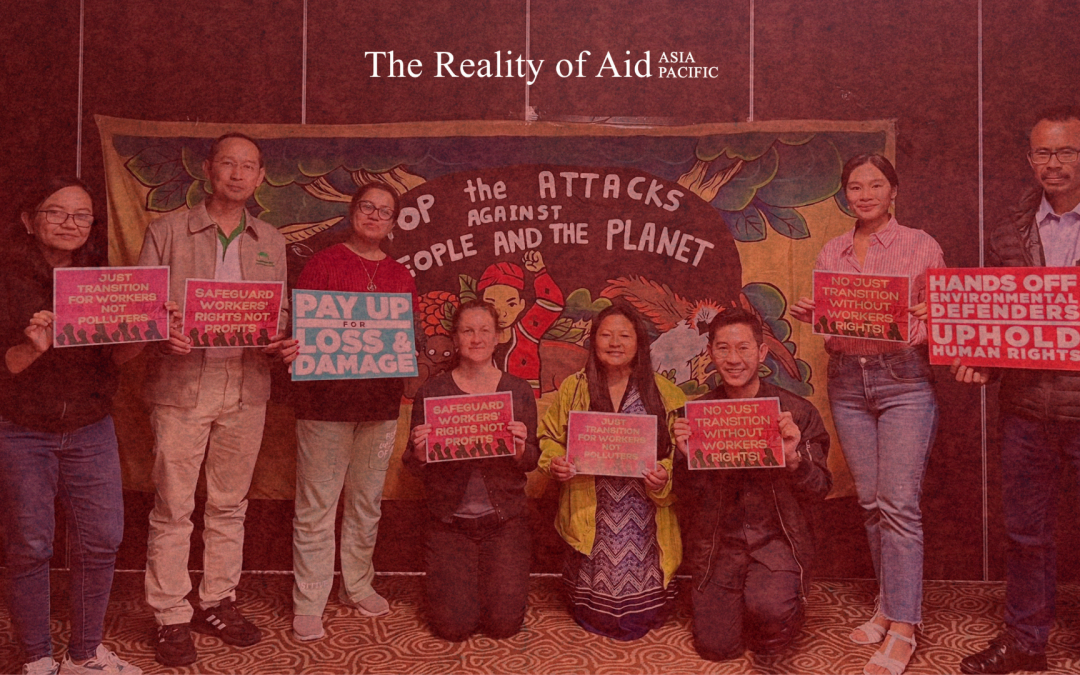Incheon, South Korea – The Asian Development Bank (ADB) convenes its 56th Annual Meeting, gathering various stakeholders to discuss and influence ADB’s directions from May 2 to 5, 2023. With the theme, “Rebounding Asia: Recover, Reconnect, and Reform,” the bank tackles how they will ramp up mobilizing private capital and support in addressing development challenges borne from the pandemic, economic crisis, and climate change.
However, for more than 50 years, evidence from civil society shows how ADB-funded projects and attached policy conditionalities contribute to widening inequalities, privatization of essential goods and services, human rights violations, and environmental degradation. As the bank remains to be one of the leading development investors in the region, its policy and practice directly impact the lives, livelihoods, and rights of Asia-Pacific peoples.
Jiten Yumnam of the Centre for Research and Advocacy-Manipur asserts, “The ADB’s unsustainable, technocratic, and unjust approach in addressing development challenges and the climate crisis, without adequate safeguards and accountability standards, will worsen inequality, rights violations and indebtedness in Asia-Pacific.”
Reality of Aid – Asia Pacific (RoA-AP), together with its members and partners, convened last May 1 ahead of the Annual Meeting to develop a CSO Collective Statement that amplifies the demands of the region’s marginalized, including affected communities and sectors of ADB-financed projects. The statement urges development actors and policymakers to compel the bank to abandon financing modalities and policy conditionalities that further impoverish developing states, support democratically-owned food and renewable energy systems, and ensure a just and equitable energy transition by halting all false solutions and the Energy Transition Mechanism (ETM). Furthermore, civil society calls on the ADB to contribute in addressing root causes of conflict in fragile states and to pursue a Safeguard Policy that puts primacy on human rights and does no harm to affected peoples and the environment.
Fiza Qureshi of Indus Consortium Pakistan reiterates that the bank’s revision of its Safeguards Policy should “ensure meaningful and robust engagement with communities at each stage. Furthermore, the ETM should not be pursued without communities’ engagement, openness, transparency and an active redressal mechanism.”
Related to the ETM, Mayang Azurin of the Global Alliance for Incinerator Alternatives (GAIA) Asia Pacific demands, “It is urgent that the ADB refrain from using scarce resources for waste-to-energy (WTE) incinerators and instead look into existing community-led energy solutions that upholds peoples’ role as local experts and decision-makers in development.”
“At the core of updating, implementing, and monitoring policies and projects, the ADB must consider aligning objectives against Development Effectiveness principles, especially that of democratic country ownership and transparency and mutual accountability,” reminds Sarah Torres of RoA-AP.
Full CSO Collective Statement can be found here: https://realityofaid.org/cso-collective-statement-56th-agm/
***
Reality of Aid – Asia Pacific is a network of civil society organizations working on aid and development cooperation. RoA-AP is based in Manila, Philippines. For correspondence, email Tala Batangan at tbatangan@realityofaid.org. For more information, visit www.realityofaid.org/cso-aid-observatorio.

